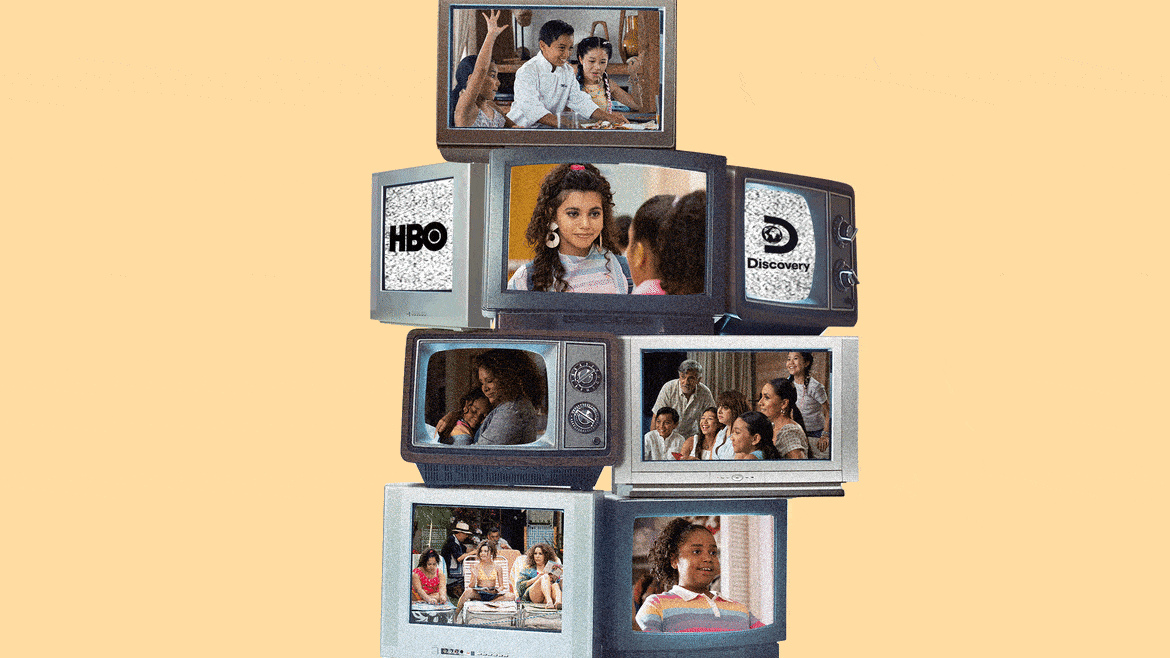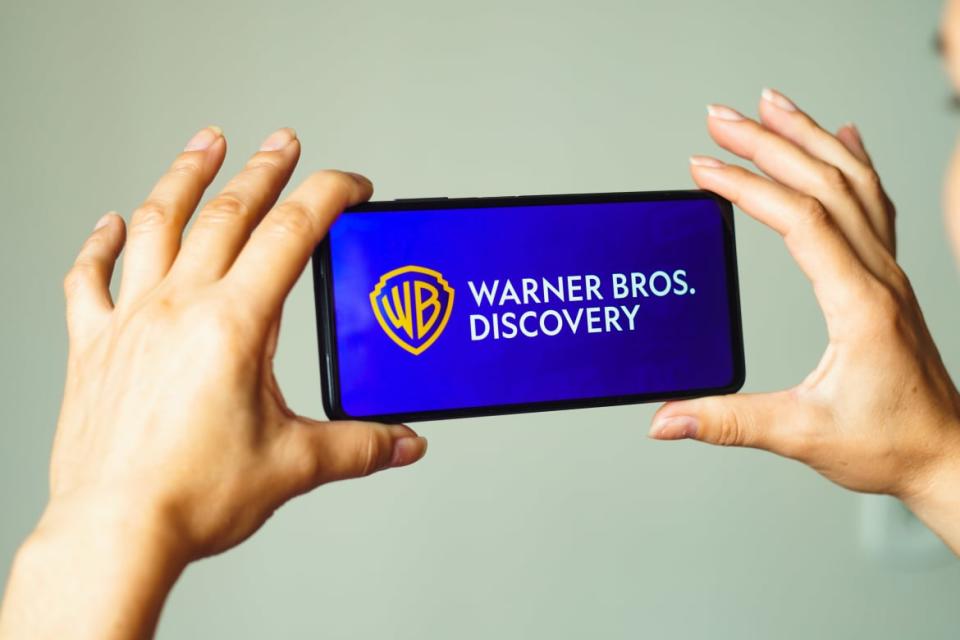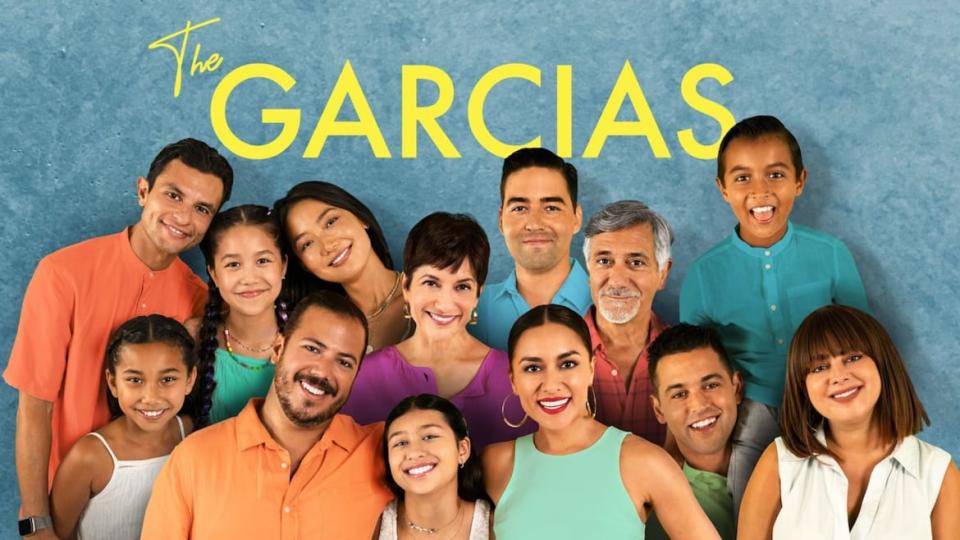How Warner Bros. Discovery Is Screwing Over Latinos

- Oops!Something went wrong.Please try again later.
- Oops!Something went wrong.Please try again later.
- Oops!Something went wrong.Please try again later.
When the team behind The Gordita Chronicles first found out that their show’s corporate overlord was headed for a merger, all hands were on deck. Eva Longoria—an executive producer on the series alongside Zoe Saldaña—allegedly went straight to the top and called HBO exec Casey Bloys.
“She really hunted him down,” showrunner Brigitte Muñoz-Liebowitz recalled with a laugh during a recent interview with The Daily Beast. The chief content officer seemed reluctant to give a straight answer, the showrunner said, but Longoria wasn’t having it. “He hemmed and hawed a little bit, and then he said, ‘Yeah, I don’t think we’re gonna be able to make it work.’” The reason? HBO Max would no longer be producing “family content.”
That explanation never made much sense to Muñoz-Liebowitz, who noted during our interview that the Gordita creators always saw the series as a straight sitcom. And besides, the showrunner said, Gordita Chronicles was never discoverable under the streamer’s “Family” or “Comedy” categories; it only appeared under “Latino.”
As questionable as the Gordita team found Bloys’ “family content” explanation for the show’s cancellation, another detail he allegedly shared might be even more telling. As part of Warner Bros. merger with Discovery, Inc., the team learned, “premium” HBO Max shows would migrate to HBO proper. Gordita Chronicles just wasn’t one of them.
A bitter irony tinged the showrunner’s voice as she looked back on the moment. “So we’re not premium? Okay.” This was, after all, the same company that was more than happy to trot out the show’s creator for its market diversity pamphlets. To unceremoniously boot the show after just one season, Muñoz-Liebowitz said, was “egregious.”
As frustrating as the situation might have been, what happened to The Gordita Chronicles was not an anomaly within the industry. Frances Negrón-Muntaner—a Puerto Rican filmmaker, writer, and scholar whose 2016 study The Latino Disconnect examined the effect of mergers on Latinx representation—has found that generally, as she told The Daily Beast, the word “‘merger,’ for Latinos, equals ‘disempowerment.’” Combine media consolidation with often lazy or misguided marketing for Latinx shows and an apparent lack of support for Latinx programs, and the abysmal statistics we see each year regarding the community’s representation in Hollywood start to make sense.
Advocates for mergers will often argue that these moves not only reduce costs and increase consumer choice, but also that they’re good for diversity. Negrón-Muntaner’s study, which focused primarily on the merger between Comcast and NBCUniversal in 2011, indicated otherwise. “What we found is that, no—there’s less diversity in some cases [but] definitely not more diversity,” Negrón-Muntaner said. “And people that manage to hang on to the boat have less power.”
In the case of Comcast and NBCUniversal, this played out as Telemundo executives who once ruled the roost at the network found themselves subordinate to their (white, non-Latinx) corporate overlords from NBC. Overall, the report states, non-Latino leadership at Telemundo rose at a higher rate than Latinos within NBCUniversal as a whole—further diluting the influence Latinx workers had within the conglomerate.
Negrón-Muntaner’s study examined NBCUniversal’s TV line-up for three years before and after the merger and found that the only representational gain was a measly 0.8 percent among directors—from 3.6 percent during the 2008-2009 season to 4.4 percent in 2014-2015. All other categories decreased. “Even more striking,” the scholar wrote, “the small gain in Latino television on-screen representation was accompanied by a surge in stereotypical roles: from 34.1 percent in the 2008-2009 season to 52.5 percent in the 2014-2015 season.”

The Gordita Chronicles cast
The number of Latinx characters who fell into stereotypical “types”—maids, janitors, inmates, cops—also tripled during this period. As one former NBCUniversal executive said in the study, “If a business is ‘integrated’ into another, jobs will be lost. But in the case of a minority business, it additionally creates an imbalance by making the Anglo voices bigger, stronger and more pervasive.”
“Structurally speaking, there’s a disempowerment going on,” Negrón-Muntaner told The Daily Beast. “And that disempowerment can translate into different kinds of programming, different priorities, et cetera.”
The homogenization among top executives at Warner Bros. Discovery has actually made headlines. When news of mass layoffs broke in August, The Daily Beast reporter Adam Manno revealed that about a dozen non-white executives had been let go as the newly formed conglomerate targeted “Middle America.” As one former executive told The Daily Beast post-layoffs, “I don’t think anyone knows just how white the staff is.”
Whether it’s Warner Bros. Discovery firing a dozen non-white executives or Netflix wiping out editorial operations largely staffed by women of color and queer people, marginalized groups always seem to be first out the door when large corporations need to save money. As Negrón-Muntaner pointed out, that might have something to do with the nature of the business itself: “It’s an industry that also has to keep control of the story—of who or what America is, who lives here, what they want, and what they’re about.”
So, what happens when just a handful of men—and as Muñoz-Liebowitz put it, “we all know what they look like”—get to decide what content is “premium” and what is disposable?
The dust has yet to settle from Warner Bros. Discovery’s merger. Executive exits and layoffs keep making headlines. At least 68 titles have been scrubbed from the platform, and two nearly completed films—including Batgirl, which carried a $90 million budget—have been shelved. Last week, the studio announced that it would end its decades-old writers’ workshop and its equivalent directing program, both of which fostered young, diverse talent within the industry, but reinstated the program within 24 hours after widespread backlash, primarily because it violated DGA rules. (The program has been transferred to the company’s Diversity, Equity, and Inclusion division.)
This corporate cannibalism we’re witnessing doesn’t feel particularly different from mergers past, said WGA research director Laura Blum-Smith. It’s just not often a newly merged studio will drop the pretense of goodwill as quickly as Warner Bros. Discovery has.
“The company is using its enhanced market power to slash programming, reduce the content available to consumers, and cut costs by squeezing workers,” Blum-Smith said. “For writers, what this means here is they’re losing a potential employer. They’re losing jobs on existing projects; they’re losing access to their own work; they’re losing out on future residuals when content is canceled or pulled. It’s a bad moment.”
Media consolidation has already shrunk the number of venues competing for talent in Hollywood, and the lack of competition has brought catastrophic effects for workers who don’t have rich parents and, therefore, a robust financial cushion. Support staffers like assistants and script coordinators are taking on five-figure debts just to keep their jobs in the hopes of getting promoted to one with a livable paycheck. Streaming has decimated the pay structures that once allowed writers to string together a career in what is essentially a freelance industry. And the lack of competition for workers’ talent means pay rates have languished as residuals deteriorate.

Adam Conover, whose truTV series Adam Ruins Everything ended during the Time Warner-AT&T merger, told The Daily Beast that this year’s corporate bloodbath felt like an echo of the merger that killed his show. “To me, it looked literally the same,” he said. In the seven years since Conover first pitched Adam Ruins Everything, his list of pitchable venues has diminished to a fraction of its original length. Divisions that once competed for content—like truTV and TBS—have been folded under shared umbrellas and, too often, eventually dissolved as original content hubs.
This means fewer network homes for shows that cater to so-called “niche” audiences or fall “outside the box.” According to Muñoz-Liebowitz, if there are fewer outlets for a writer to pitch, and an increased number of those outlets are catering primarily to “Middle America” (whatever that means), “it just narrows the target.”
“I thought our show was for everybody, personally,” she said. “But if the people who are curating content don’t hold diversity and representation as a value, there won’t be [any]. And there will be erasure of content like ours.”
Based on her research, Negrón-Muntaner has noticed that Latinx and Asian American representation in Hollywood face a similar challenge: While these populations have increased exponentially in the U.S. over time, on-screen and behind-the-scenes representation has never consistently risen for either group. Instead, Negrón-Muntaner said, the trend lines she’s observed fluctuate “up and down, up and down.”
Negrón-Muntaner’s 2014 benchmark study The Latino Media Gap noted several institutional barriers to representation, including advocates’ observation that Latinx people “are generally viewed as new arrivals and foreigners.” Their inclusion, therefore, “is not perceived as a public good.”
The notion that all Latinx and Asian American people are recent immigrants is an obviously bigoted and ahistorical narrative. Just ask Jeff Valdez, who created The Brothers Garcia and its sequel series, The Garcias, based on his own family—who’ve lived here since 1540.
“Our whole brand and everything we’re doing is completely what we call ‘new mainstream,’” Valdez told The Daily Beast. “They’re an American family. They haven’t migrated… It’s kind of hard to be an immigrant when you’ve been here for 500 years.”
And yet, when it came time to market the original series at Nickelodeon, one image kept coming back up: sombreros.
“I don’t think they were evil,” Valdez said of the Nickelodeon marketing team at the time. “They were just uneducated. I don’t believe it was some kind of racist, horrible thing they were trying to do, but it was offensive, obviously.”
The CEO of Nickelodeon at the time, Herb Scannell, happened to be half-Puerto Rican, Valdez recalled, so a simple phone call was all it took to resolve the hiccup. But when a new marketing team came aboard four years later and proposed sombreros once more, Valdez had to call Herb again.
Now, just like The Gordita Chronicles, The Garcias appears to have gotten sidelined during Warner Bros. Discovery’s corporate downsizing. The series premiered within a week of the merger’s completion back in April, and during the lead-up Valdez and his team found themselves underwhelmed with the marketing their series had received. So they did something a little unorthodox: They took over their own marketing one week before the show’s premiere.

The Garcias cast
“We had, like, a week before launch to ramp up an internal marketing team and create a plan and go with it,” Valdez said. “So we had to be like a SWAT group.”
Then HBO Max allegedly tried to avoid submitting The Garcias for Emmy consideration. After some discussion, Valdez said, the company agreed to submit the show for Outstanding Comedy Series—a consistently competitive category—but refused to submit its cast or directors for specific consideration. He and his colleagues came up with countless guerrilla marketing tactics to get their For Your Consideration message across: yard signs, skywriting, a flash mob, a digital billboard on Sunset Boulevard, and even an FYC sign plastered on the Naked Cowboy’s derriere.
Marketing appears to be a major hurdle for Latinx programming in Hollywood, in part because studios won’t give up the idea that this audience—composed of viewers from dozens of countries—can somehow be treated as a monolith. As Negrón-Muntaner put it, the “Holy Grail” for marketing executives in Hollywood appears to be, “Just tell us how to reach all the Latinos, all at once.” Her response? “Well, that’s never going to happen.”
Rather than try and understand Latinx viewers—or any marginalized group, for that matter—Valdez said some studios seem content to “just check the box and say, ‘We made a show with Latinos, or LGTBQ, or whatever” rather than curate and support a robust offering. “I always say that would be like me buying one or two stocks and calling it a portfolio,” Valdez said.
“You’ve got to invest in your content,” the showrunner continued. “Because if you don’t invest in the marketing and things fail, well then how do you ever really know if there’s a market?”
It’s not unusual for fans of a canceled series to call upon other networks and streamers to “save” the show by picking it up and producing more seasons. At this point, however, Gordita’s search for a new home appears to be officially over. The team received a number of explanations for their rejection—a common one being, “We already have a Latinx show.”
And who needs more than one? After all, we’re only talking about 17.4 percent of the population, and only $1.5 trillion in buying power, according to The Latino Disconnect.
How long will this remain a population Hollywood can afford to ignore?
Get the Daily Beast's biggest scoops and scandals delivered right to your inbox. Sign up now.
Stay informed and gain unlimited access to the Daily Beast's unmatched reporting. Subscribe now.

